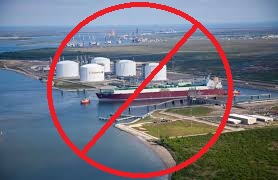Information From Gas-Drilling Companies Isn’t Coming Easily
July 22, 2010Former Oil and Gas Producer Tells NYS to "scrap proposed DEC regulations"…wait for EPA to issue its new guidelines
July 25, 2010By Don Hopey, Pittsburgh Post-Gazette
Concerns about the risk of water contamination and public health problems from Marcellus Shale drilling dominated a sometimes loud U.S. Environmental Protection Agency hearing in Southpointe attended by 1,200 people Thursday night.
Although EPA officials told those in attendance the meeting was not about drilling policy, most of the more than 100 speakers let it be known that they oppose Marcellus Shale drilling in the state, and many shared personal stories of contaminated wells, dead farm animals and damaged health. They attributed the problems to water contamination caused by the deep gas drilling operations that are increasing quickly through much of the state.
Several urged that a moratorium on Marcellus Shale drilling be enacted until the EPA finishes its study scheduled for the end of 2012.
Erica Staff, of PennEnvironment, a statewide environmental group, was joined by many speakers in requesting that the EPA broaden its study of the hydraulic fracturing process, known in the industry as “fracking.”
“I urge EPA to expand the scope of the study to include the entire life cycle of gas extraction,” Ms. Staff said.
Myron Arnowitt, state director for Clean Water Action, said the EPA needs to look at industry practices that have caused the state Department of Environmental Protection to issue 565 violations at 207 of the 1,458 wells drilled into the Marcellus Shale in Pennsylvania since 2005.
“Eighty of the violations are for illegal disposal of wastewater, and 115 of them were for frack pit violations, and those are serious and need to be investigated by the EPA,” Mr. Arnowitt said.
The hearing was the third of four meetings scheduled around the country by the EPA to provide information and gather comments about its proposed $1.9 million study of the risks to surface and ground water from fracking, a high-pressure, water intensive, procedure used in deep natural gas well drilling to free the gas from dense rock layers a mile or more underground. The EPA held hearings in Fort Worth, Texas, and Denver earlier this month, and next month will hold the last hearing in Binghamton, N.Y.
The drilling technique, used in deep shale and coal beds from Texas to Colorado to Pennsylvania, pumps up to 8 million gallons water and chemical additives — some of them toxic — mixed with sand or similar materials down a well under high pressure. The “fracking fluid” causes the shale or coal to crack and the sand props the rock layers apart, allowing the gas trapped there to escape up the well. Some of the contaminated water also returns to the surface and must be collected and disposed of or reused in other wells.
The drilling industry, which emphasizes the economic benefits of tapping into one of the largest unconventional gas fields in the world, says fracking has been used successfully and safely for more than 50 years in many shallow gas wells in Pennsylvania.
“Fracking is neither a new nor controversial process,” said Lou D’Amico, president and executive director of the Pennsylvania Independent Oil and Gas Association. “Any controversy is based on hysteria, not facts. It’s had no negative impact on groundwater anywhere it’s been used.”
James Erb, who spoke as a representative of the American Petroleum Institute, said his members know that fracking is a public concern and support the EPA’s review of the technology.
“We intend to be active in the study plan developments and its implementation,” Mr. Erb said. “We are confident it will show no risk to human health, water resources or the environment.”
But environmentalists say the use of fracking in the Marcellus Shale bed that underlies three-fourths of Pennsylvania expands its impact on water supplies and quality.
Terry Greenwood, a Washington County farmer, said he lost 10 calves, eight of them stillborn and another born with a cleft palate, after Marcellus gas wells were drilled near his property.
“My water went bad, but the DEP said it was just farmers’ bad luck,” he said. “But since I fenced off my pond in 2009, I haven’t had any problems. I think clean water is more important than gas.”
In its announcement of public hearings for its study in June, the EPA noted that “serious concerns have been raised about hydraulic fracturing’s potential impact on drinking water, human health and the environment.”
In a statement released Wednesday, the EPA said that while natural gas “plays a key role in our nation’s clean energy future and the process known as hydraulic fracturing is one way of accessing that vital resource … there are serious questions about whether the process of hydraulic fracturing impacts drinking water, human health and the environment and further study is warranted.”
The agency said the public hearings are part of the process of launching that study and promised to utilize the best available science and consider public input.
“We see an opportunity, too, for more case studies,” said Robert Puls, of the EPA’s National Risk Management Laboratory. “We’ll also look at vulnerable water resources, both in terms of their distance from a drill site and the intensity of well development. Because of that, the risk could be greater both in terms of water quality and quantity.”
As if to emphasize the high stakes of the gas drilling in the Marcellus Shale, industry and environmental groups staged competing news conferences immediately prior to Thursday evening’s hearing.
A 2004 EPA review of earlier hydraulic fracturing studies identified health risks associated with some of the lubricating chemicals in the fracking fluid, and noted that the fracturing process could create pathways through which methane can contaminate drinking water wells, but concluded that it found no link between “fracking” and contamination of drinking water supplies. That review, which was used to exempt hydrologic fracturing from regulation by the EPA under the federal Safe Drinking Water Act, has been widely criticized by scientists and environmental organizations for failing to take into account case studies of existing contamination.
The new EPA fracking study proposal was prompted by last year’s introduction of legislation — H.B. 2766, also known as the “FRAC Act” — that would remove the hydraulic fracturing exemptions that were granted in 2005. The industry is opposed to EPA regulation of the fracking process and has lobbied against passage of the bill.
Thursday night’s hearing capped an active week on the Marcellus Shale issue. On Tuesday, Pittsburgh passed a resolution demanding that the state impose a one-year moratorium — similar to that already in place in New York — on drilling into the 450-million-year-old Devonian formation, the hottest natural gas “play,” or deposit, in the nation. Wednesday evening a standing-room-only crowd of more than 200 attended an Allegheny County Council hearing that focused on Marcellus well drilling in Allegheny County an its potential impacts on the environment and the health of residents and also its economic benefits.
The Marcellus Shale Coalition issued a statement calling the city’s moratorium resolution “unfortunate, unnecessary and, frankly, ill-advised” while citing industry job growth and downplaying environmental risks. PennEnvironment commended the city for recognizing that “the gas drilling industry’s track record of spills and violations demonstrates a need for additional rules and laws that protect our rivers, drinking water, open spaces, clean air, and public health.”
Also this week, the state Department of Environmental Protection ordered Cabot Oil & Gas Corp. within 60 days to fix permanently the water supplies in 14 homes in Dimock, Susquehanna County, that were contaminated by the company’s gas well drilling operations. The DEP said it would lift a ban on reviewing new gas well applications by Cabot after the company permanently plugged three of the wells.
An industry study, released Wednesday and paid for by the American Petroleum Institute, said Marcellus Shale gas production could create 280,000 new jobs region-wide, and add $6 billion in new tax revenue to local state and federal governments over the next decade. The study, authored by Timothy Consindine of Natural Resource Economics, a Wyoming consulting firm that does work for the industry, said about 100,000 of those jobs could be created in Pennsylvania and West Virginia. When he worked for Penn State University, Mr. Consindine was also the author of a 2009 report that predicted Marcellus Shale drilling would have a multi-billion dollar impact and create 175,000 jobs in Pennsylvania by 2020. The report was criticized because it did not disclose that it was funded by the Macellus Shale Coalition, a pro-industry advocacy organization.
The state Environmental Quality Board also held a hearing Thursday night in Pittsburgh on proposed state regulatory changes to improve the safety of oil and gas wells and protect the Pennsylvania’s water supplies from contamination. The tighter well construction standards are intended to prevent natural gas from migrating from a well to adjacent, shallow ground water where it contaminate the water supply and cause dangerous concentrations to accumulate in homes and structures.
Because of the conflict with the EPA hearing, the EQB will hold a repeat hearing at 7 p.m. Monday in the state Department of Environmental Protection’s Waterfront Conference room A and B, 400 Waterfront Drive, Washington’s Landing.
Don Hopey: 412-263-1983 or dhopey@post-gazette.com.




